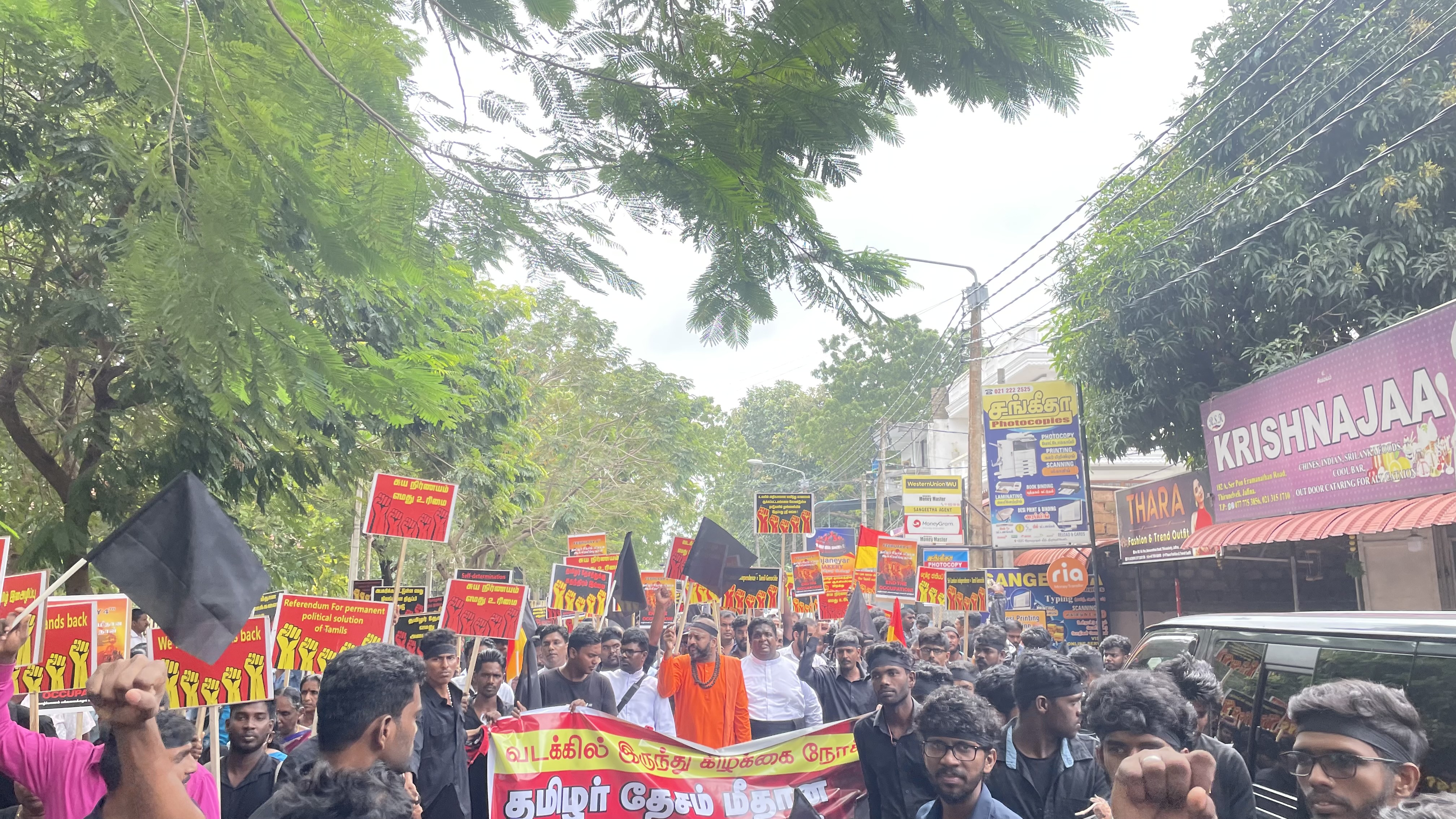
As we approach the New Year, Tamil Guardian has assembled some of the biggest stories on Sri Lanka this past year. 2023 has undeniably been a turbulent year from increasing military land grabs; Tamil judges being forced to flee the island; crack on democratic protests and genocide memorials. The year has concluded with a farcical display of “unity” with members of the Global Tamil Forum (GTF) meeting with the Sinhala Buddhist clergy and signing the “Himalaya Declaration” – a initiative which has been nearly universally condemned by the Tamils on the island and across the diaspora as a whitewash.
Despite the increased oppression, Eelam Tamils have stood unwavering in their demands for truth, justice and accountability for the genocide they suffered. This has also seen unprecedented sanctions on senior Sri Lankan officials implicated in war crimes including the Rajapaksa brothers. As we look towards 2024, we reaffirm our commitment to uplifting the voices of Eelam Tamils from the homeland.
January
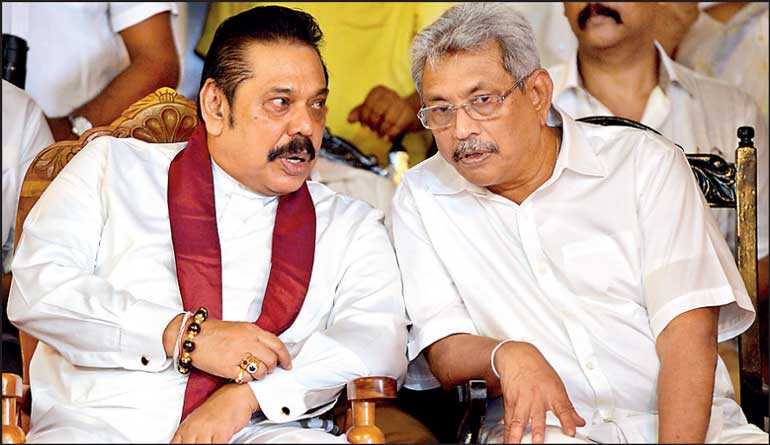
This year kicked off with the landmark decision by the Canadian government to impose sanctions on two former Sri Lankan presidents, Mahinda and Gotabaya Rajapaksa, for “gross and systematic violations of human rights” during the armed conflict.
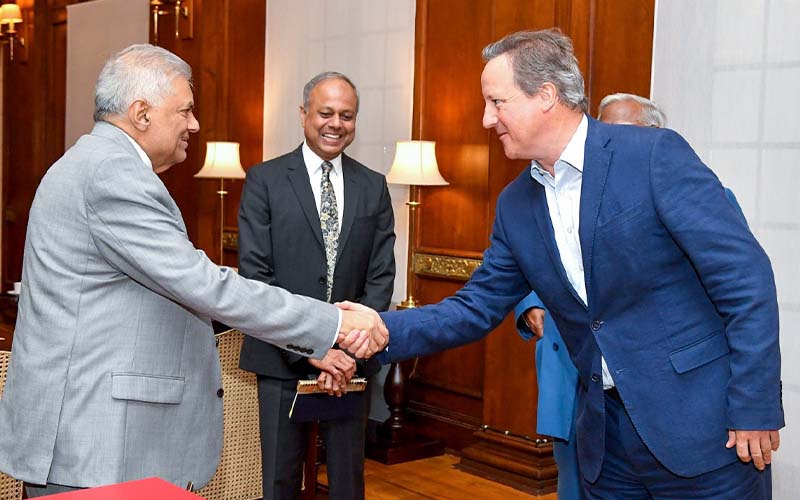
Whilst this was hailed a step in the right direction, earlier that same month Tamil National Alliance (TNA) leader, R. Sampanthan, met with Mahinda Rajapaksa despite his direct involvement in the genocide against Tamils. Similarly, former British Prime Minister, and now the current UK foreign secretary, met with Sri Lanka’s President Ranil Wickremesinghe despite heavy opposition from Tamil activists.
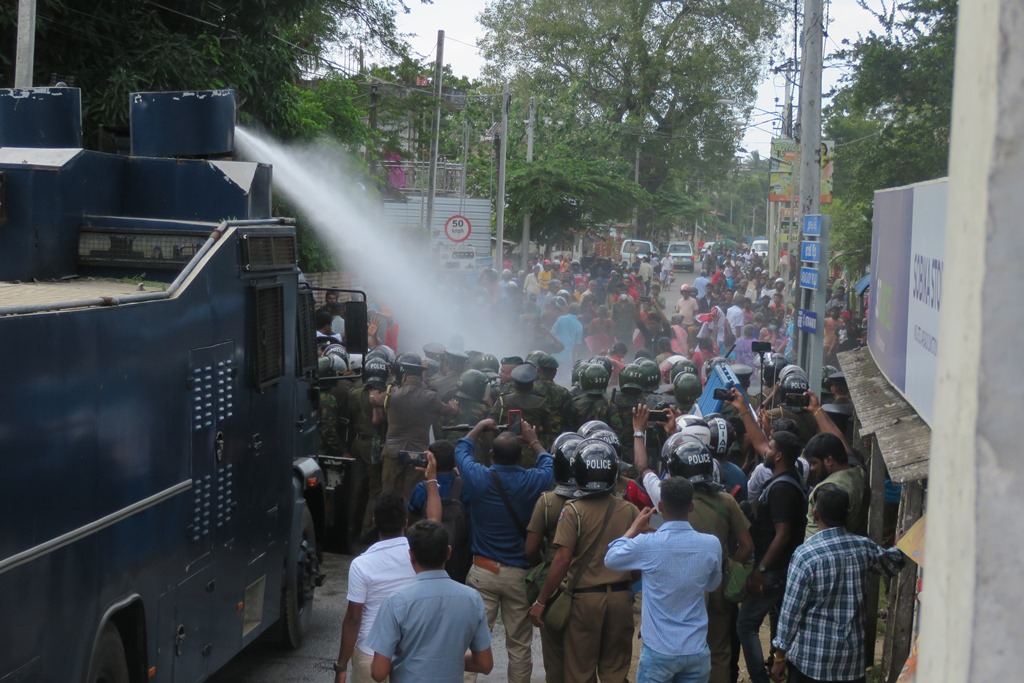
In response to peaceful demonstrations against Wickremesinghe’s visit to Jaffna, Sri Lanka’s police crackdown on protesters launching water cannons and arresting a civil society leader.
February
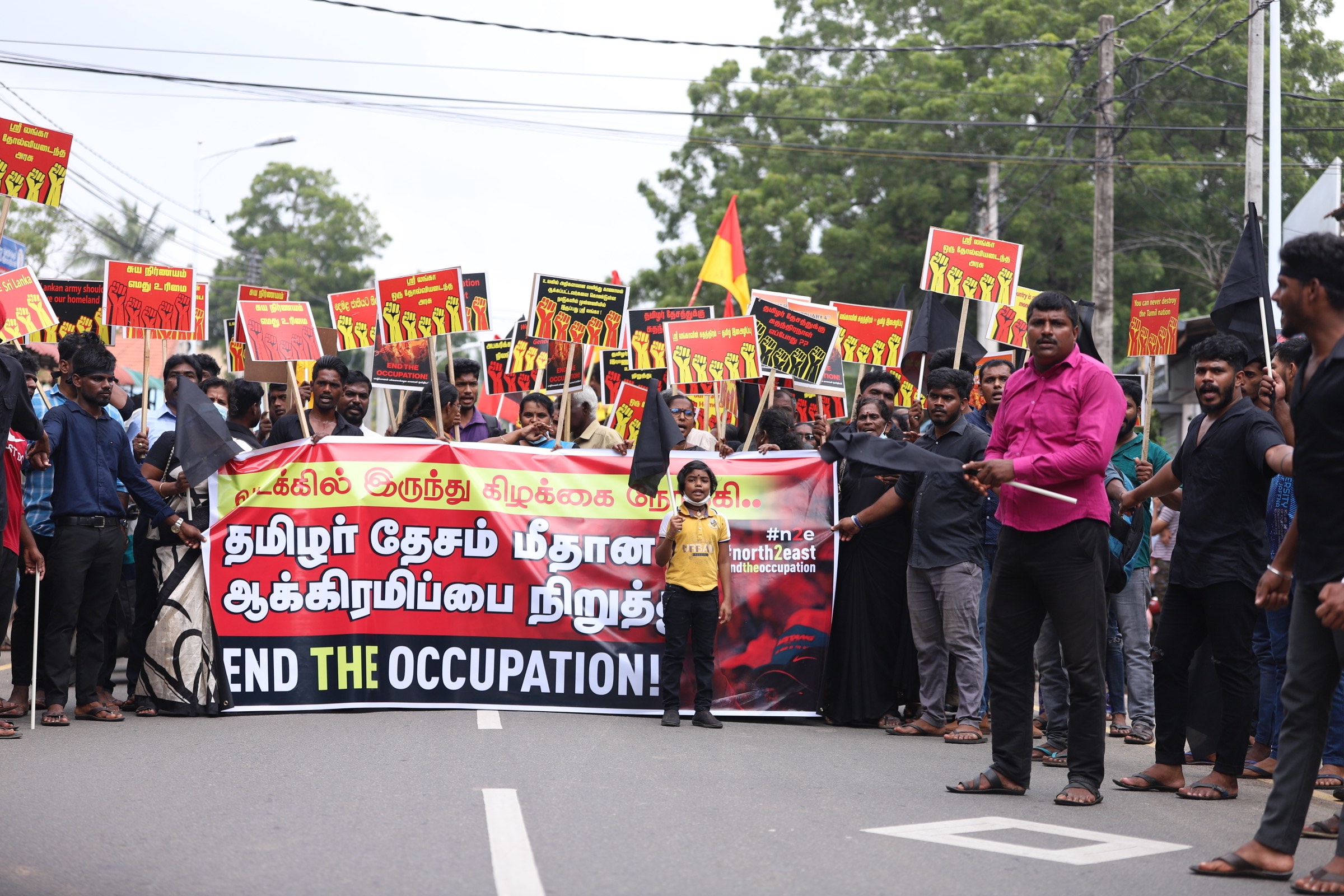
Despite the onslaught of violence from Sri Lankan state actors, Tamils across the North-East remained defiant. During Sri Lanka’s Independence Day celebrations, Tamils hoisted black flags rejecting the celebrations, staging hartals and opposing the unitary structure of the Sri Lankan state. During his Independence Day speech, Sri Lanka’s President maintained that he would “never consent to the division of this nation”. This statement came as Amnesty International released a statement condemning the excessive use of force by Sri Lankan Police amidst concerns of crackdowns on democratic protesters.
Read our February Editorial: Wickremesinghe’s ultimatum
March
March saw the conclusion of the 42nd Universal Period Review of human rights, the Council urged the Sri Lankan government to address issues affecting the North and East which included continued land grabs and missing persons. Key members such as the UK also raised alarm over repeated attempts by the Sri Lankan state to crackdown on Tamil memorial activities.
This month also saw Sri Lankan police arrest the head of the Association of Relatives of the Disappeared, Kasipillai Jayavanitha.
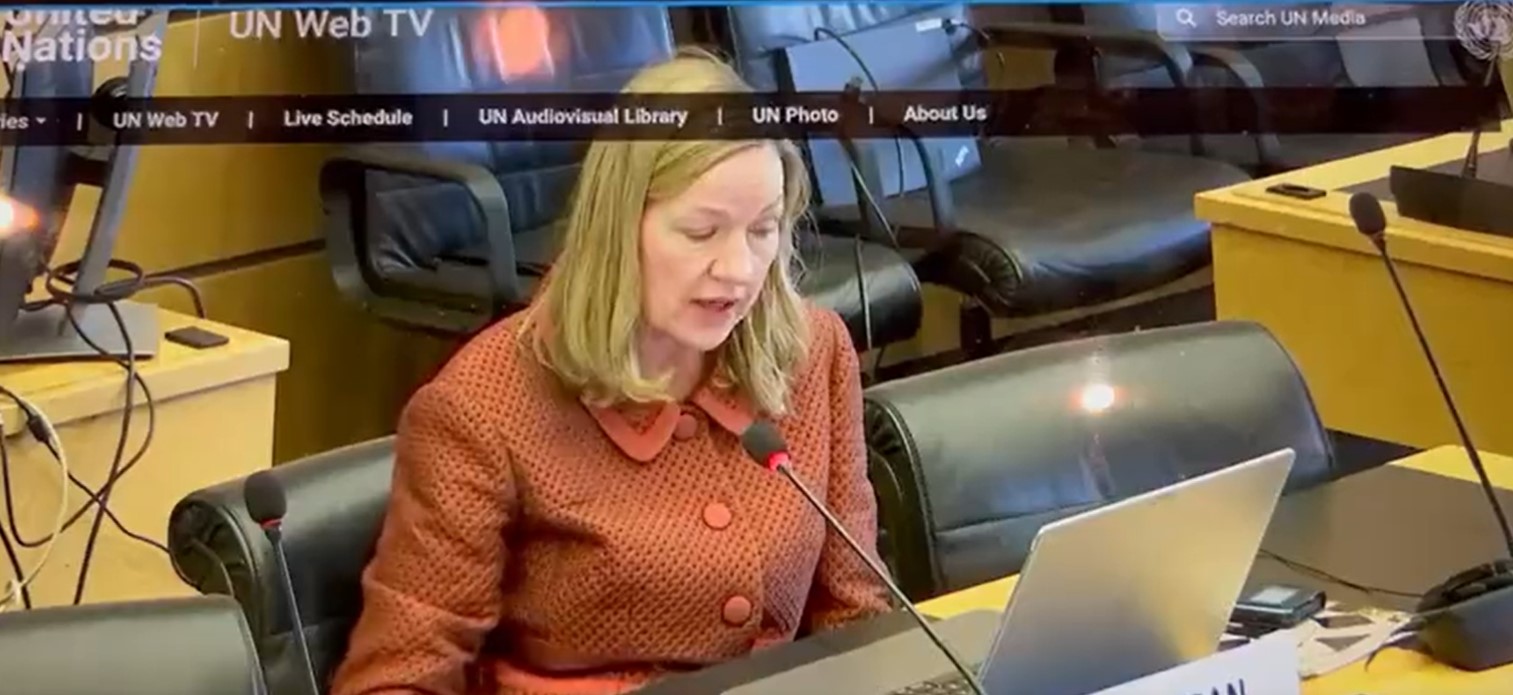
At the UN Human Rights Committee, Marcia V. J. Kran, Canadian lawyer and expert member of the committee, pressed Sri Lanka delegate Major General Kulatunga about his role in overseeing the Joseph Camp in Vavuniya, plagued with allegations of torture, and the Army Court’s denial of war crimes.
April
.jpeg)
April saw victory for Eelam Tamils as demonstrators halted efforts by the Sri Lanka’s Survey Department to expand land grabs for Sri Lanka’s Navy in the Kayts. This came as Tamils faced eviction in Mullaitivu to make way for 180 Sinhala settler families. In Muttur, Trincomalee, a Buddhist temple was erected on land belonging to the Malaiyadi Pillaiyar Temple with the support of the Sri Lankan military.
Responding to ongoing Sinhalaisation efforts and proposed new anti-terror legislation, Tamils across the North-East staged a hartal.
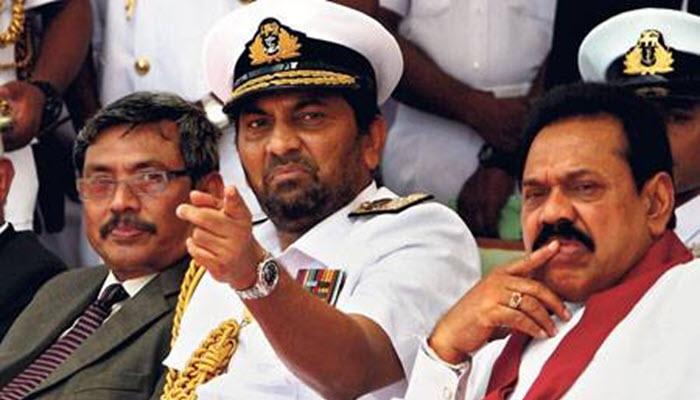
The month concluded with the US imposing a travel ban on ormer Sri Lankan Naval Commander Wasantha Karannagoda due to his involvement in human rights violations.
Read TG’s view here: Not just one rotten apple
May
May saw renewed calls for Sri Lanka to be referred to the International Criminal Court, being advanced by the UK’s Shadow Foreign Secretary and US congress members, as well as increasing international recognition of the Tamil Genocide. This May saw Canada’s Prime Minister marking May 18 as Tamil Genocide Remembrance Day.
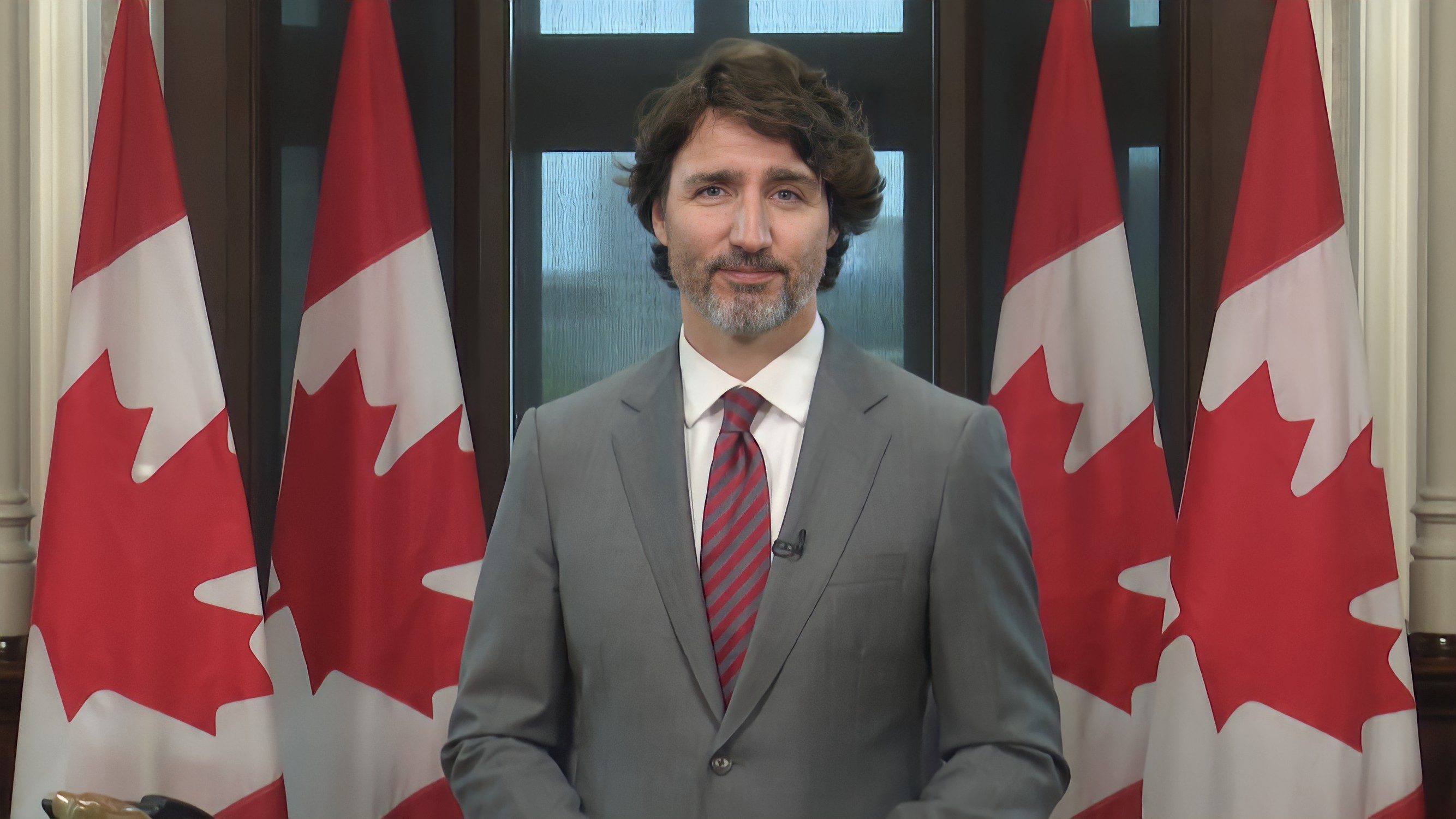
This month also saw, three parents of fallen Liberation Tigers of Tamil Eelam (LTTE) conduct a fast unto death to demand the release of the Alampil Thuyilum Illam which is currently being occupied by the Sri Lankan army's 23rd Regiment.
Members of the Tamil National People’s Front also staged a protest against the illegal imposition of a Buddhist statue in Kandarodai.
Despite the threats and intimidation, Eelam Tamils continued to assemble en mass to mark the genocide.
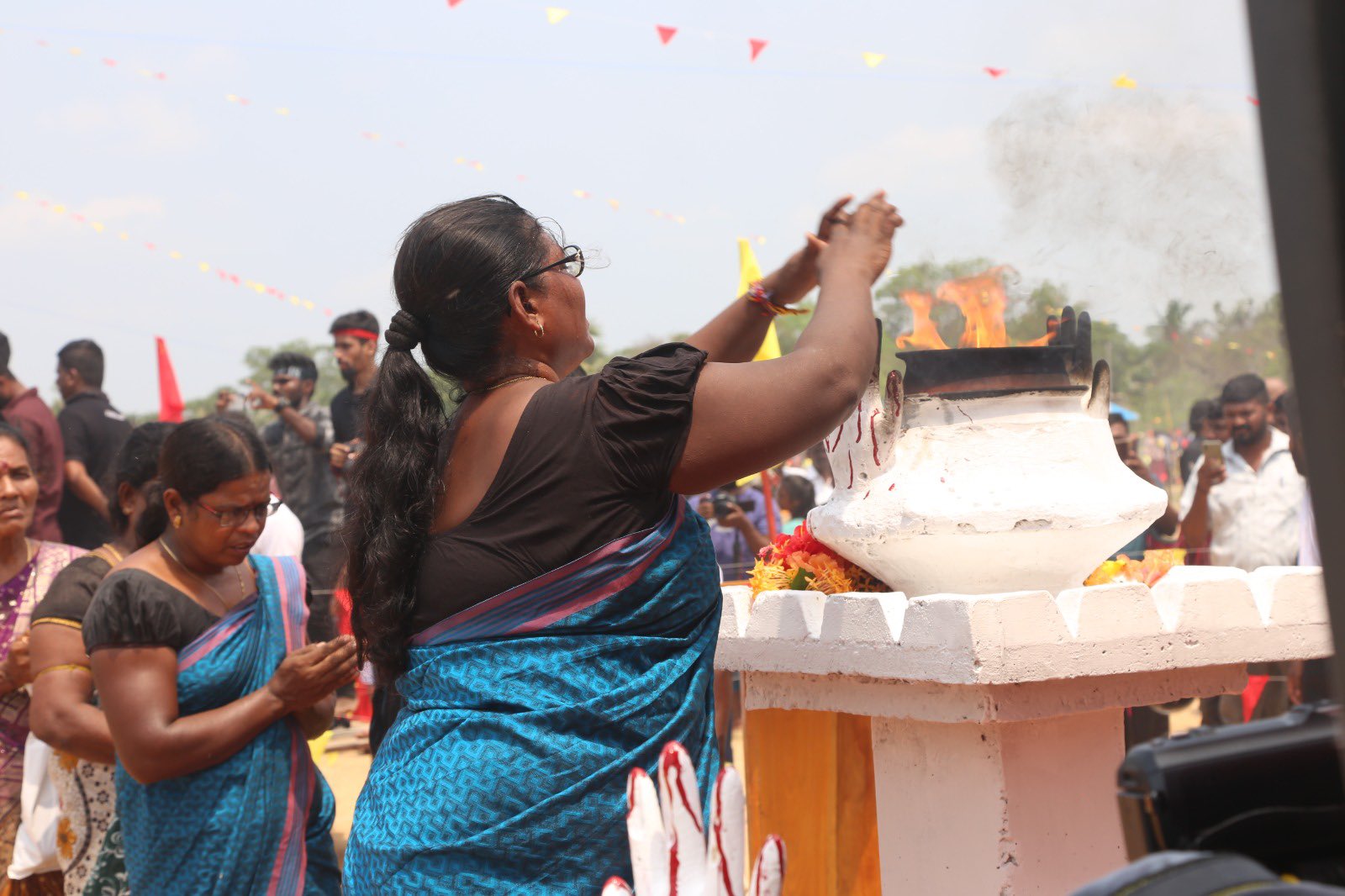
June
This month saw the leader of the Tamil National People's Front, Gajendrakumar Ponnambalam MP have a gun drawn on him and police arrest him due to the incident. Tamil National Alliance (TNA) MP, Sivagnanam Sritharan, condemned the intimidation of Ponnambalam as an act of “extreme repression”.
Following the threatening of TNPF leader Gajendrakumar Ponnnambalam and his subsequent arrest and release on bail, Chairman of the Oversight Committee on National Security, former Rear Admiral, Sarath Weerasekara MP warned that Tamil MPs must know their place or face arrest.
June also saw the release of a new joint report, 'Mass Graves and Failed Exhumations', detailing a pattern of systematic failures by Sri Lanka to exhume and investigate mass graves across the island.

Speaking at the UN Human Rights Council, UN Deputy High Commissioner for Human Rights, Nada Al-Nasif stressed in her update on Sri Lanka the importance of accountability and raised concern over the Sri Lanka’s president’s “heavy-handed approach to protests” and proposed replacement to the Prevention of Terrorism Act.
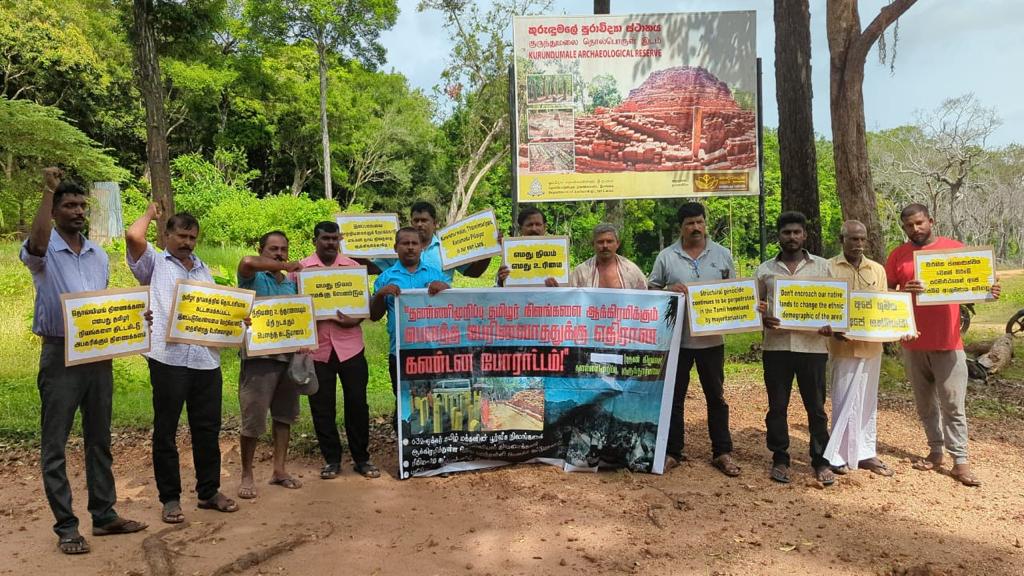
This month also saw continued protests by local Tamils against the illegal construction of a Buddhist temple at Kurunthumalai, an ancient Tamil temple site.
July
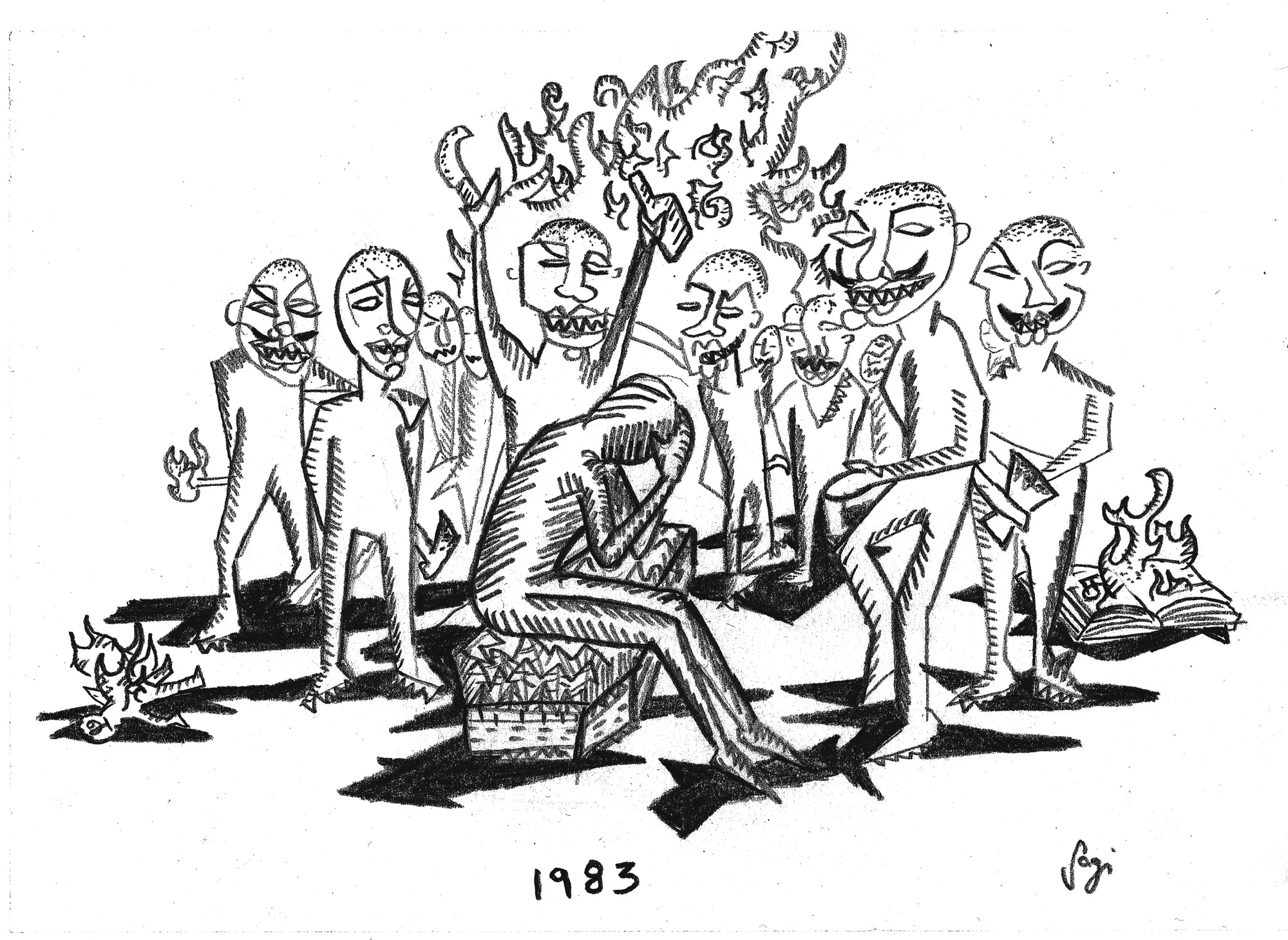 Art by Sagi Thilipkumar
Art by Sagi Thilipkumar
In July 2023, the 40th anniversary of the 'Black July' anti-Tamil pogrom was marked, drawing international attention. Canada's Ambassador to Sri Lanka, Eric Walsh, called for recognition of the atrocities, while British MPs advocated labeling the events as 'genocide' against Tamils.
Read our July editorial: Reflections on Genocide
Earlier in July 2023, the discovery of human remains in a mass grave in Mullaitivu's Kokkuthoduvai area prompted a state-led exhumation effort, revealing challenges such as funding shortages, indicating potential reluctance to expose state implications in past mass killings and burials of Tamils. Meanwhile, the Magistrate court in Mannar ordered a comprehensive report on the Sathosa mass grave, where 318 bodies, including 18 children, were discovered.
August
In August 2023, tensions heightened as Sinhalese settlers and Buddhist monks encroached violently into the Mayilathadu and Madhavani areas in Batticaloa. A Sinhala Buddhist monk obstructed and threatened Tamils attempting to access their land encroached upon by a Buddhist vihara in Mayilaththamadu, revealing escalating conflicts and challenges faced by the Tamil community in safeguarding their land rights. The incident sparked a chain of similar events in the following months. See below Tamil MP, Gajendrakumar Ponnambalam's views on the Mayilathadu and Madhavani land grabs in an exclusive interview with us:
September
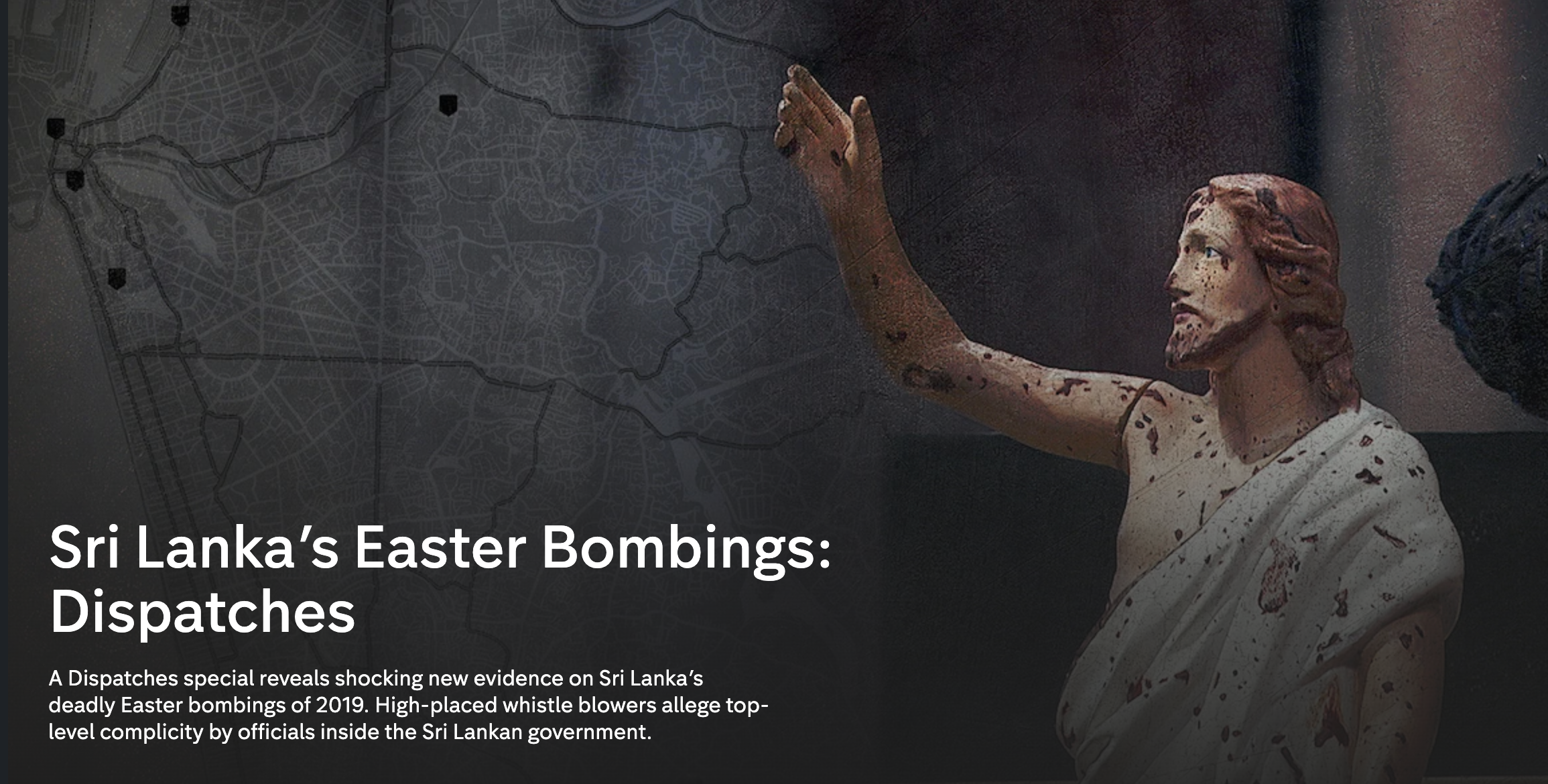
In September 2023, Channel 4 aired a documentary revealing high-placed whistleblowers exposing Sri Lankan government officials, including the Rajapaksa family, as masterminds behind the 2019 Easter Sunday bombings. Whistleblower Hanzeer Azad Maulana named military intelligence head Suresh Salley, former paramilitary leader Pillayan, and the Rajapaksa family as orchestrators of the 2019 bombings. Following the release of the documentary, a parliamentary committee to investigate the allegations was created.
.jpeg)
During the month, Mullaitivu Tamil District Judge T. Saravanarajah resigned and fled due to death threats and government pressure, linked to his judgement in the Kurunthurmalai archaeological site case. The latter case's judgement highlighted the failure of Archaeological Department officials to adhere to court orders, resulting in the Director General of Archaeology being held in contempt of court. The judge's resignation underscored concerns about the challenges faced by legal professionals in upholding justice and the rule of law, prompting a collective call for the preservation and strengthening of judicial independence in Sri Lanka in the following month.
The month also witnessed the attack on a memorial float commemorating Lt Col Thileepan's fast unto death. The attack was condemned by politicians around the world.
October

In October 2023, the 'Yaazh Gaanam' concert, with Eelam Tamil and Kollywood singers and celebrities participating, emerged as a significant highlight, representing a milestone in the region since the end of the armed conflict. This large-scale event, featuring prominent performers from Tamil Nadu and the Eelam Tamil diaspora, was headlined by the acclaimed Tamil music maestro Santhosh Narayanan. The concert held in Jaffna was not only a celebration of music but also a poignant tribute to Tamil heritage and helped raise awareness on the liberation struggle of the Eelam Tamils.
November
In November 2023, Tamils displayed unwavering defiance against the state's attempts to obstruct Maaveerar Naal commemoration events, with thousands gathering across the homeland and the diaspora. See, for example, the scale of the event in Kanagapuram in the aerial footage below.
However, during the same month, the Tamil community was shaken by the death of Nagarasa Alex, a 25-year-old Tamil man, who was tortured to death by the Sri Lankan police. His death sparked widespread protests demanding justice in the North-East. On a positive note, 71-year-old Akila Thirunayaki Sriseyananthapavan from Mullaitivu triumphed at the Masters Athletics Championships in the Philippines, winning gold in the 1,500 and 5,000-meter races and a bronze in the 800 meters, captivating hearts globally.
Read our editorial: Still rebuilding, still resisting
December
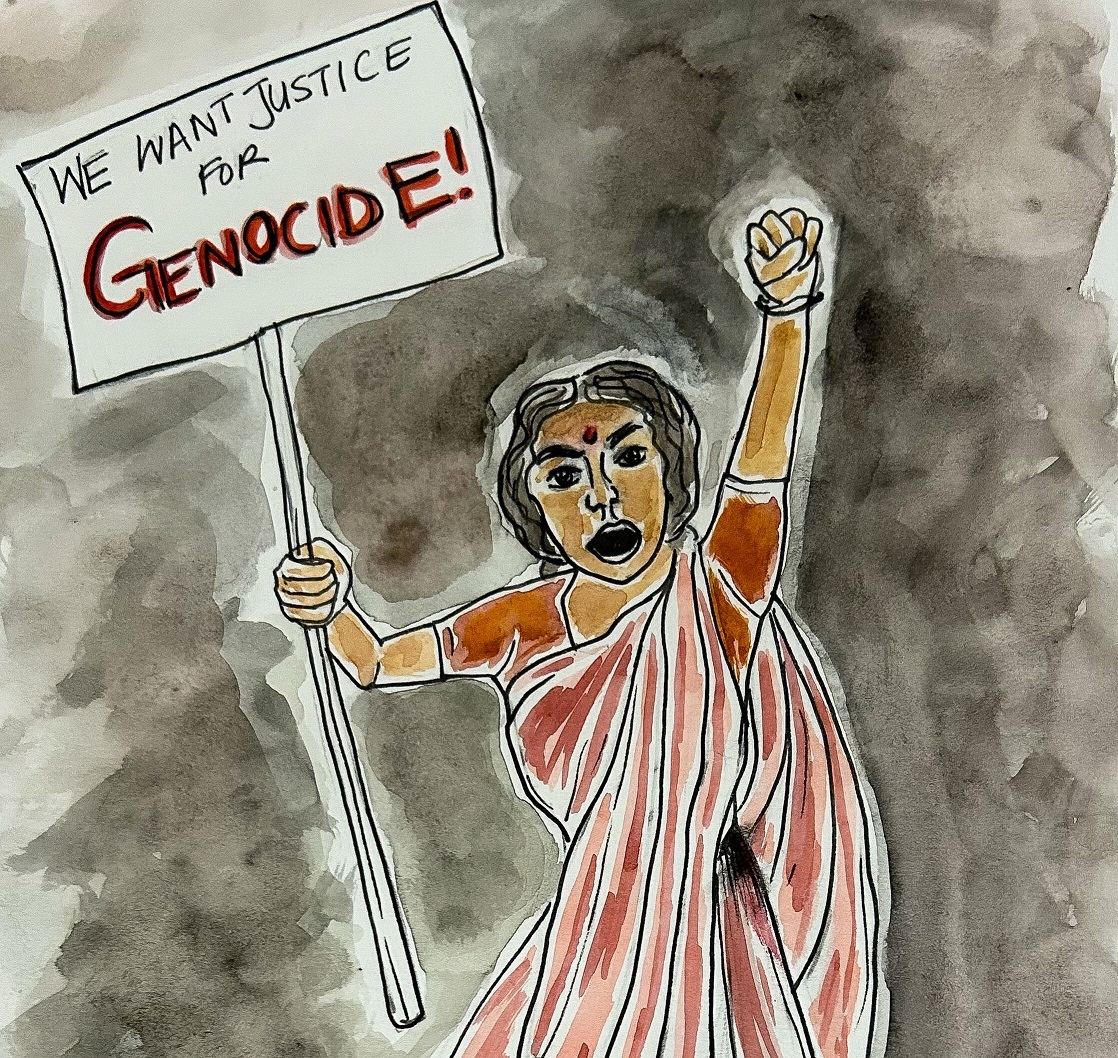
In December 2023, Sri Lankan police's arrests of Tamils, including children, involved in Maaveer Naal remembrance events drew condemnation from the UN High Commissioner for Human Rights, the US, the UK, the EU, and Canada. The month was marred by the tragic torture and killing of 13-year-old Ananthadevan Darsanth by Sri Lankan police, sparking widespread unrest and protests against police violence targeting Tamils.
The draft 'Himalaya Declaration,' initiated by the Global Tamil Forum and Sinhala Buddhist monks, faced criticism for obfuscating decades-long international accountability calls and whitewashing the struggle for self-determination. The GTF also met with the accused war criminal Mahinda Rajapaksa.
Read our December editorial: A whitewash
Meanwhile, a landmark resolution by US senators and representatives urged Sri Lanka to demilitarise the North-East, repeal the PTA, halt land grabs, and remove war criminals from positions of authority.
December also saw Tamil livestock farmers in Mayilathamadu and Madhavanai, in the Batticaloa district of Sri Lanka, mark 100 days of continuous protest against state-sponsored Sinhalese settler violence.
A sustained campaign for justice
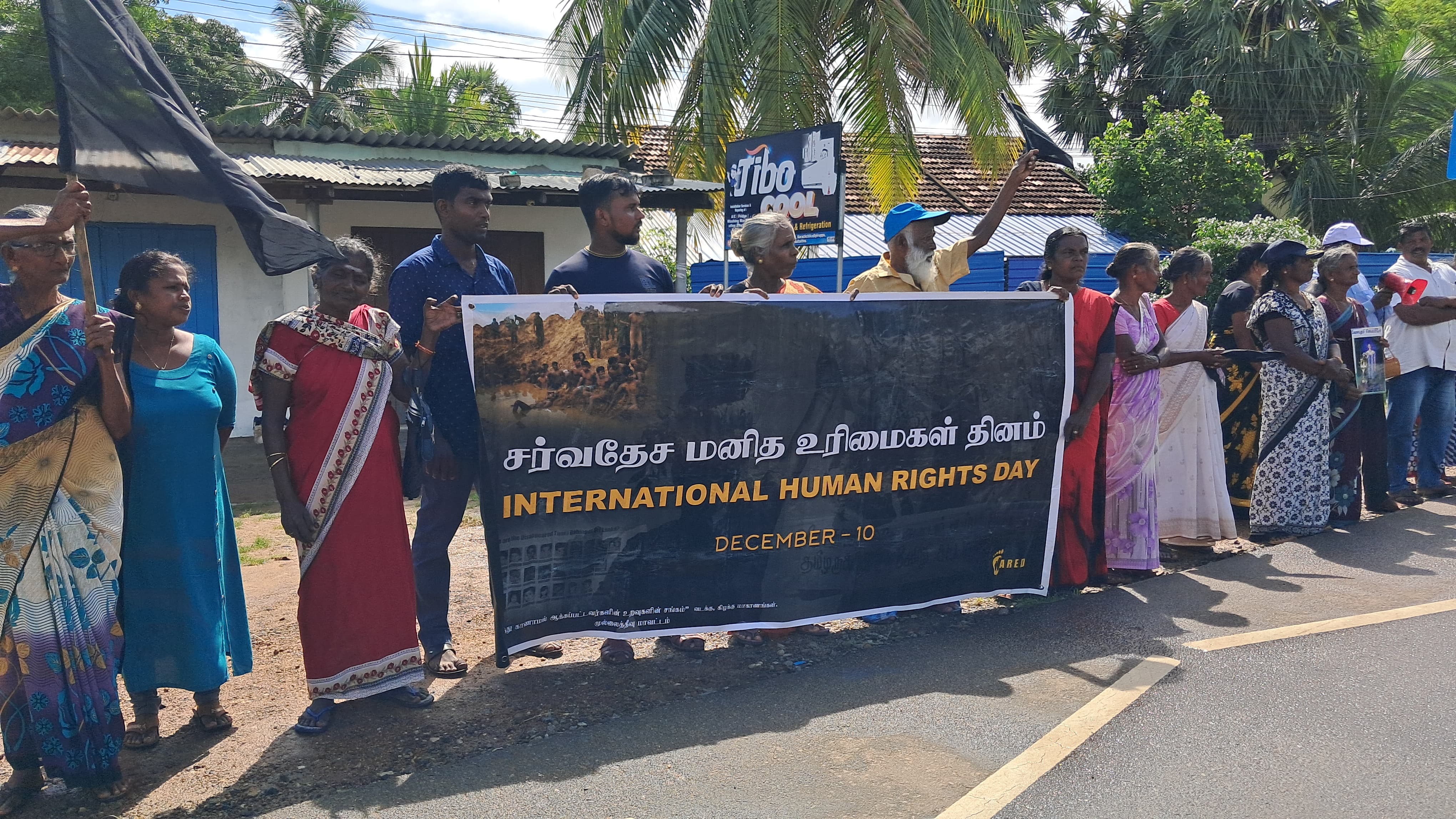
Our journalism is only possible thanks to the generous donations of patrons such as yourself. Despite the risks, our team on the ground remain committed to providing detailed and accurate reporting of developments in the Tamil homeland, across the island and around the world, as well as providing expert analysis and insight from the Tamil point of view.
Please donate here
